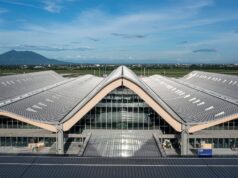
CITY OF SAN FERNANDO, Pampanga (PIA) — Department of Science and Technology (DOST) boosts its provision of livelihood assistance to various groups in Central Luzon under its Community Empowerment thru Science and Technology (CEST) program.
DOST Project Assistant III John Lerry Bautista said this is a response to and support of the United Nation’s call through Sustainable Development Goals to address the widespread problem of poverty in the world.
“Using science and technology, CEST provides technical assistance to community beneficiaries to improve living standards, improve health and nutrition, promote sound and progressive education, and protect the environment and prepare for disasters,” he said.
From 2018 to 2021, DOST has launched projects in 63 municipalities, assisted 467 customers, and conducted 1,771 interventions.
Among their livelihood initiatives include provision of cashew processing, fish processing facility and fish cages, community gardening, and production of free-range chickens.
Bautista said that for this year, they have identified 33 municipalities, with 10 new communities as program beneficiaries, with projects focusing on the theme ‘Strengthening Local Disaster Preparedness and Post Pandemic Recovery Capacities of Central Luzon Community’.
With the help of the Food Nutrition and Research Institute, DOST has also developed products like rice monggo baby food blend, malunggay noodles, and nutribun that is used to provide nutritious meals during feeding programs.
In terms of environmental protection and preservation, Bautista said they provide training and technical consultancy for mangrove rehabilitation; technology for processing biodegradable waste to convert into organic fertilizer and methane gas; and training on disaster risk management, among others.
“Since 2019, we have developed a technology called the disaster preparedness kit. This contains Disaster Risk Reduction and Management lessons and training programs, solar panels, radios, and tablets which barangays can to elevate and enhance their knowledge on disaster preparedness,” he said.
DOST will build three processing facilities in the provinces of Aurora, Nueva Ecija, and Bataan, which will produce nutritious ready-to-eat relief goods which can be distributed during disasters.
Bautista said that qualified to avail of the technology and services under the CEST program are those in the geographically isolated and disadvantaged areas communities as long as they are members of the marginalized sector; they have a group, association, or a cooperative; part of women’s organization, part of the indigenous peoples’ community; or those living in communities with armed conflict.
DOST’s CEST program aims to provide livelihood and alleviate poverty in remote communities. Its implementation entails provision and transfer of technology-based livelihood projects to the identified communities.
This will also facilitate the transfer of technologies to beneficiaries along the areas of education, health and nutrition, water and sanitation, disaster risk reduction, and industry development or livelihood.



